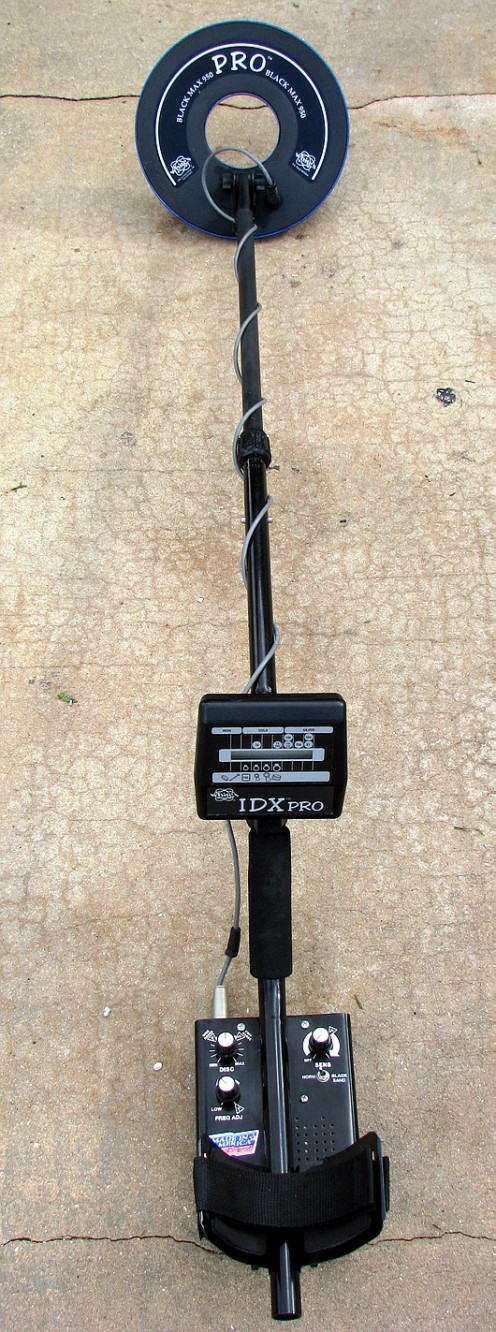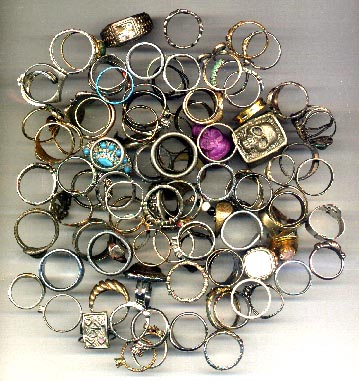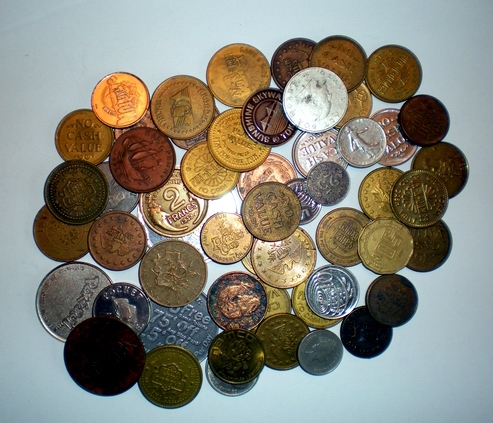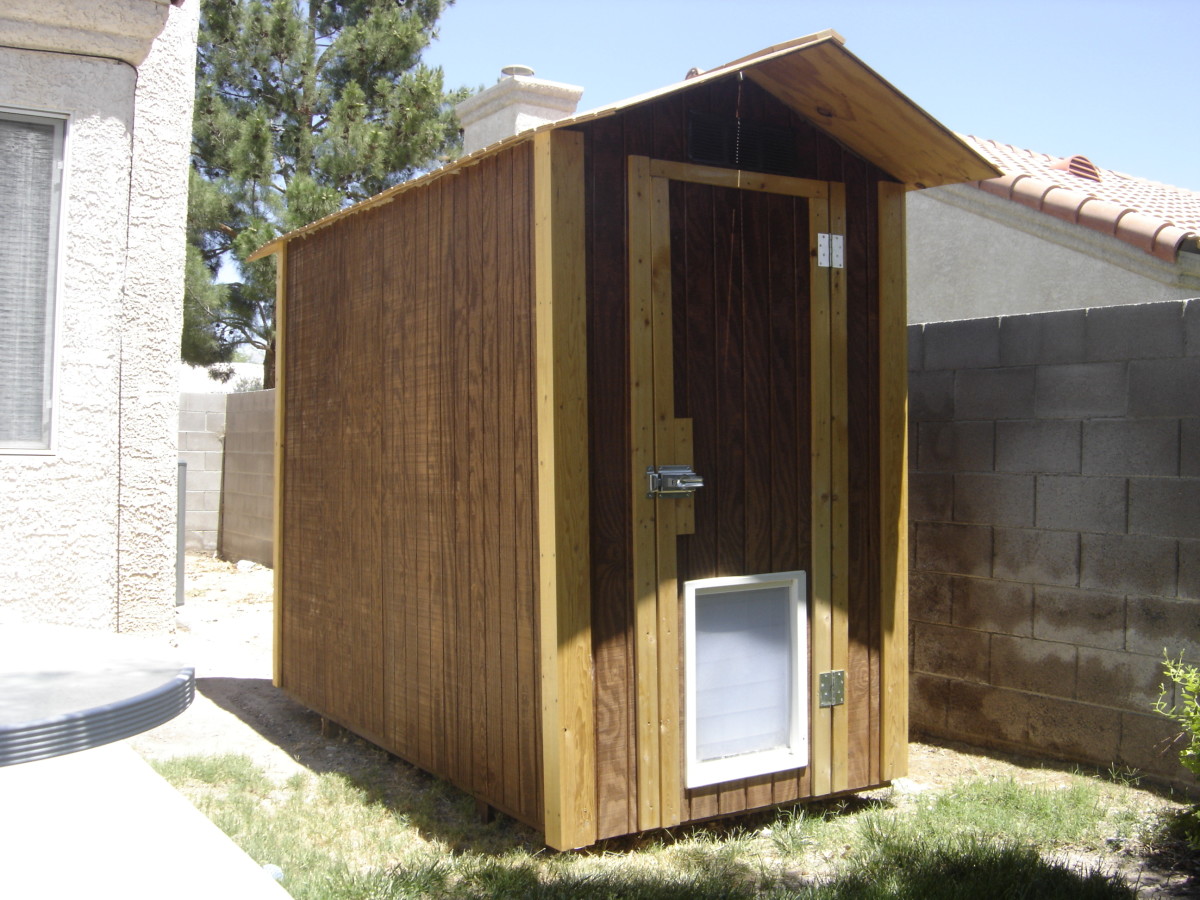TREASURE IN YOUR BACKYARD.
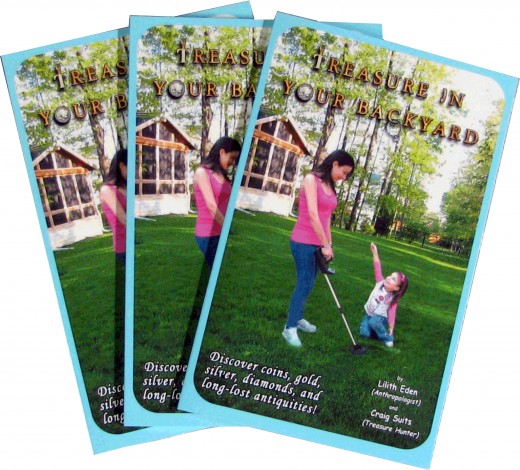

Click here for the official book order and info site.
www.dooahhh1.com/treasureinyourbackyard.html
Also available at Amazon, Barnes and Noble and other online book stores in paperback and e-book formats.
If your lucky or just plain persistent, this little "know how" book will pay for itself 100 time over and possibly on your very first treasure hunt.
TREASURE IN YOUR BACK YARD
About 40 years ago I built my first metal detector from a kit. It took about two days to complete and around 11pm that night, I armed myself with a screwdriver for digging, a flashlight, and my new treasure finder and headed for my front yard. It only took a few passes of the detector head before it produced a beep. I zeroed in on the sound, dug down about an inch and HOLY COW! It really worked. There sitting in my soiled and quivering hand was two slightly tarnished pennies. Well I’ll tell you, they might as well have been golden doubloons for all I cared. This was the mother lode that launched a 40 year hobby that has netted me tens of thousands of coins, hundreds of rings and other jewelry, plus masses of highly diversified items you wouldn’t believe.
From bullets to barrettes and everything possible in between such as a 200 pound, iron radiator to a tiny ball bearing the size of a pin head. Gold, silver, platinum, nickel, iron, aluminum, steel, copper, brass, Any metal at all will produce a beep on your detector and pinpoint exactly where it is. All you have to do is dig it up.
Most good detectors have a discrimination setting where you can eliminate ferric (containing iron) and aluminum items if you are just interested in digging up non ferric items like gold, silver, copper, brass, and platinum. This is a handy circuit to have if you’re in a park littered with bottle caps, pull tabs, and gobs of aluminum foil but they only work well on the more expensive detectors and tend to reduce your chances of detecting very small gold items and nickels.
Everywhere people have been from yesterday to hundreds or even thousands of years ago they lost their goodies and money just as we do to this day. Keep that in mind. There WILL be “hits” where ever you go. The trick is to go to places that have a good chance of producing the types of treasure you’re looking for. A Civil War battlefield for instance can produce bullets, guns, uniform buttons, and even infantry belt buckles sometimes worth thousands of dollars. The oldest thing I ever dug up was half of a lead company logo, about 4 inches round from an Eli Whitney cotton gin. Then again, most of my earlier treasure hunting days was spent in parks, schools, beaches and play grounds looking for cash and modern jewelry. My book, “Up One Level” as I’m sure you’ve seen the excerpts from here in Hub Pages, took me about three years to write. During that time I was stone broke with no steady income whatsoever $6. Almost every day, I would walk to a local school when the kids were gone and dig up things I still don’t believe. One local school, netted me over two thousand dollars in jewelry and coins which helped to pay for smokes and food while I was writing the book. Some area’s in schools replenish themselves daily such as under the monkey bars where you can count on some upside down kid losing his lunch money and other goodies.
Start out in your front and back yards like I did. Under trees, where the ice crème man stops, around picnic tables etc... I guarantee you’ll find lots of goodies. Hey! With gold around eighteen hundred dollars an ounce these days, treasure hunting can be a very lucrative hobby. And it’s great exercise as well. After you get a little experience, get yourself a good White’s or Garrett detector and research your area looking for houses that are long gone, stores, military camps, ghost towns, and even old places where people still live. Don’t be afraid to make a deal with any of them such as they keep the artifacts and you keep the money including old gold and silver coins. Or just clean up the yard for the privilege. A few years ago, a couple of pro hunters made a deal with the owner of a house way out in the boonies somewhere that was once owned by the owners great, great grandfather. He was the only person around way back then that knew anything at all about medicine and all the people came from miles around to be treated by this man. He charged them all one dollar each. The man happened to be a recluse and really had no need for money other than his meager supplies. These two guys put two and two together, made a deal, and began hunting for this old man’s stash as there were no banks around at the time either. In a few hours, next to a tree and not far from the house, they dug up a rotting canvas bag containing over three thousand silver dollars, all in mint and near mint condition. Look up silver dollars on EBay. Some are priceless. Wow!
Some guy on Treasure Island, on the east coast of Florida, dug up a solid gold jewelry box full of Old gold and silver rings and chains. Another kid and his dad, while walking on a beach in South Florida, kicked up a thick gold, Spanish necklace that sold at auction in New York City for $24,000 and that was way back when gold was regulated at 32 dollars an ounce. Can you imagine what that thing would be worth today? Today, the gold in a cheap, average size 14k womens ring would sell for around 50 dollars not counting any diamonds of other prescious stones. It may be ten or twenty times that for a heavy man's ring..
I've owned detectors that cost over one thousand dollars but the one I used the most in parks, schools, and playgrounds is a small, three knob, Radio Shack model that you can still find on Ebay for 35 dollars of less. It’s super light, and will detect a dime or gold ring up to about 6 inches and honestly, I don’t want to dig any deeper than that in these places. The beaches are another story; you want the best detector you can afford that will detect items as deep as possible. It’s a fabulous hobby for young and old alike but remember the cardinal rule of treasure hunting…Fill up your holes and leave the land exactly as you found it! That doesn’t apply to all the gold and silver you’re going to find by the way, you can take that with you. GOOD LUCK!
See "Treasure In Your Backyard Part II" http://hubpages.com/hub/TREASURE-IN-YOUR-BACKYARD-PART-II Pictures of an 80 year old backyard garbage hole dig.
